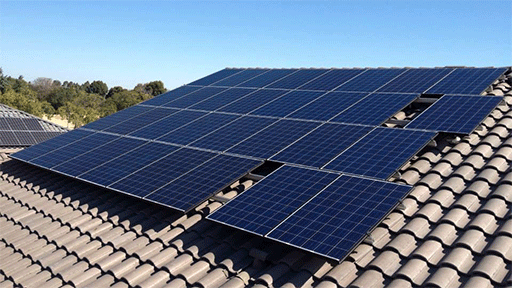1.7K
Daily Question: Is Going Solar Worth the Investment?
If you are on social media, you no doubt are seeing ads about solar and the expiration of the 2019 solar tax credit which remains at 30% of the cost of the system. After this year, owners will continue to see drop that they could deduct. In 2020, the deduction drops to 26%, then down to 22% in 2021–the last year residential can get a tax credit. By 2022, only commercial property can deduct just 10%.


4 comments
I don’t think power purchase agreements or leases are worth it. I know with leases the installation company gets the rebate. I’m not sure if the same is true for PPA’s.
If you can secure a loan for a low rate, or pay outright I think it’s worth it. You’re looking at 15-30K for a big system, including the rebate. You have to do your own math to see if the numbers work for you, but let’s say that I regularly pay $200/ month for PG&E. If I buy a $24K system and get that money from a loan it essentially pays off in 10-11 years- If you don’t go over on your net metering. You still pay PG&E about $ 10/ month for line usage fees. You may as well put that money ($200) into your house instead of PG&E’s pocket. Also, your loan rate is fixed, payments are fixed. The usage tiers keep getting fiddled with and rates go up a certain % year after year. What was a $200 dollar payment this year could be a $206 payment next year to PG&E.
The answer is something that is different for each individual. We put in a system in 2015. It’s nice to only have a 40 dollar PG&E bill each month. Quality systems have a 20 year warranty on the panels and micro inverters 25 years. Line inverters have a 10-15 year warranty; something like that, I didn’t go that route. After several years the system is paid for and you do reap the benefits.
Final thought, it’s not worth it to oversize. You want to target as close to what you need as possible- perhaps just a touch over. They only pay you wholesale for extra power you generate (just under 3 cents/ KW). They make a LOT of money of the power from your house when they sell it retail. My near $500 (retail) surplus that I had one year only got me like $70 wholesale, credited to my bill. Sure, a couple months of no PG&E was nice; but it’s just like overpaying the IRS- why would you want to give them a loan of sorts? They’re the only ones that benefit from your “generosity”. This year we had to pay $100 bucks (we went over). Fine. Better than me giving them free money.
My PG&E bill is $40/ month because you still have to pay gas monthly, in case that number was confusing.
Not sure why leases get the bad rap,sure the companies get the rebates, it’s their equipment. The flip side is there is no capital outlay to recoup if you lease, if a panel isn’t producing, gets broken by a baseball etc etc…not your problem. Guess who’s best interest it is in to fix it??? That’s right the lessor(solar company).
I’ve had a lease for about 6 years and have gone from about 3k annual to around 1800 with +/-100$ true up. So I’m saving about 40% @ .15 a kilowatt. In the end you are trading out 1 company for another…but @ a fixed rate. My guess is that if another company had the same infrastructure in the ground/air as pge (which you wouldn’t own either)and would give you a fixed rate less than your current tiered system you would switch in a heartbeat. Not unlike the game that is played w internet providers etc.
My system is a push right now. The money I save on my PG&E bill pays the loan for my system. While it does add value if I sell my home the wild card is the connection fee. Right now ir is low bit as more people get solar expect it to go up. Just like the water rates when everyone conserves water the raise the rates to be able to maintain the system. Expect the power companies to do the same. They have a big expense to maintain the grid and production capacity to cover nights and cloudy days.
Comments are closed.